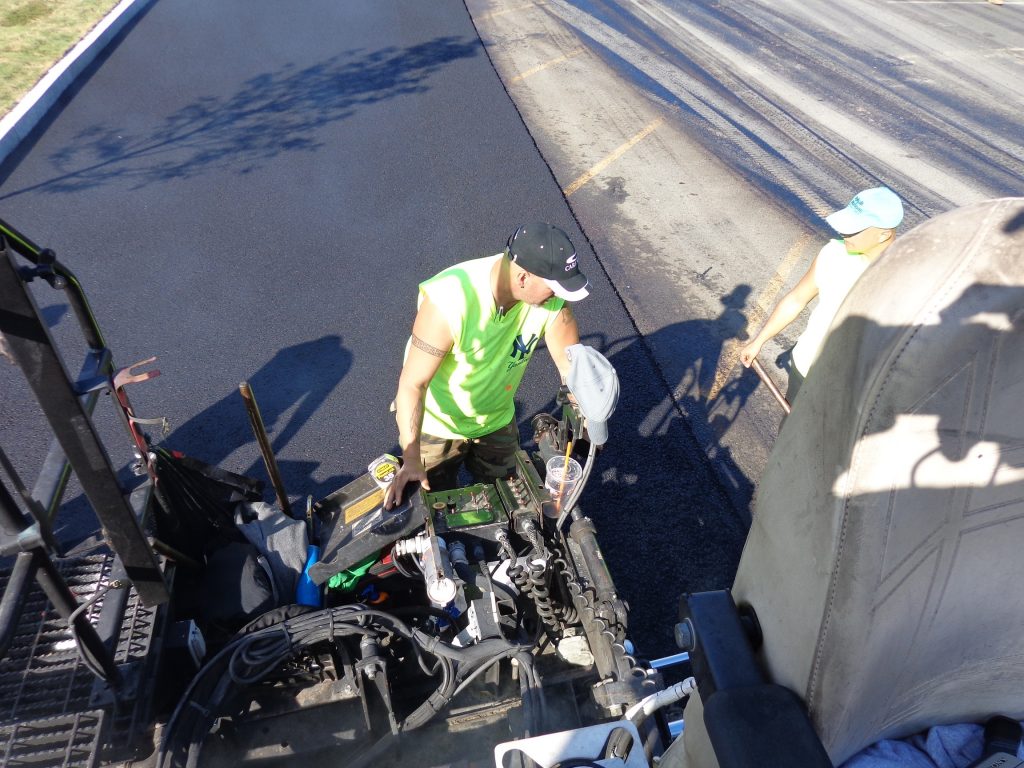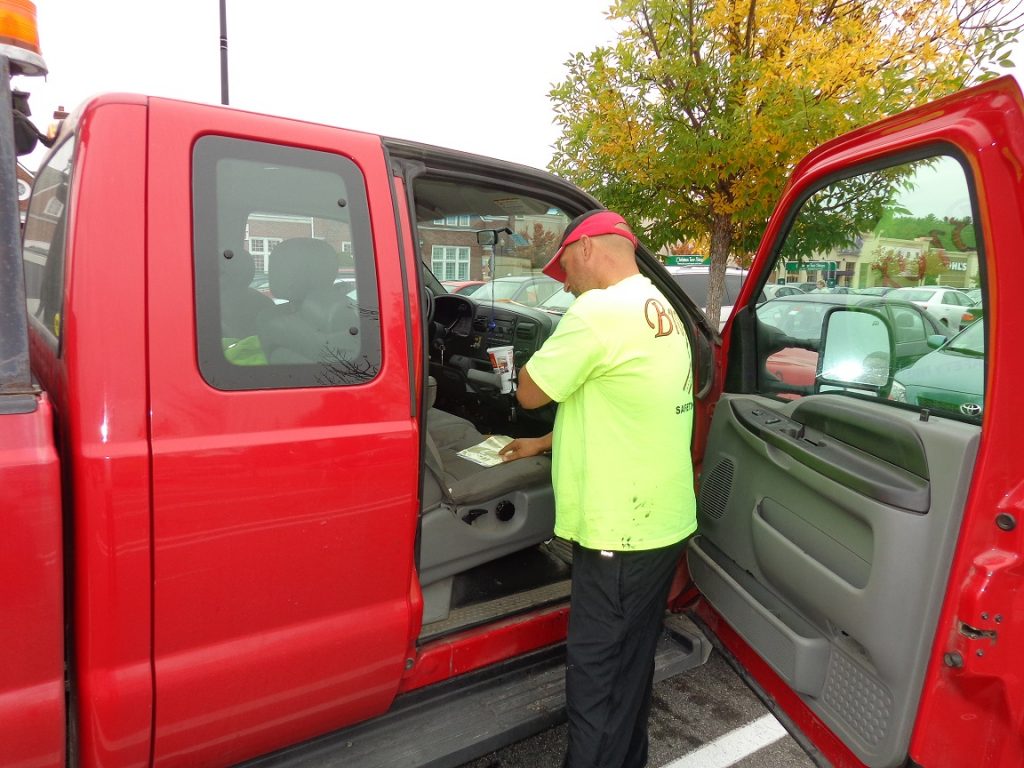Brox is Bringing Workers Back
BY AsphaltPro Staff

Life-changing events take us to places we don’t often expect. Falling in love led to marriage for Brox worker Rui Vilamarim, which led to a move from Connecticut to California. Vilamarim has a special work ethic, though, and the specific environment in which he found himself with one California company just didn’t sit right with him. When Greg Makenzie of Brox Industries asked him to come back to work in Connecticut, he said yes. Here’s how this worker’s story could be to your company’s benefit.
When Vilamarim first went to work for Brox Industries in 1998, he started out as a ground laborer and moved onto the screed quickly. A year and a half after he’d been there, he was made a foreman. He attributes that fast promotion to learning—learning by watching, by doing and from mistakes.
“I’ve always watched what people did,” he said. “Early on, I asked a foreman how to measure. Then I messed up one time real bad. But after that, I don’t throw mix away.”
He explained that he watched the members of his original crew to learn from them. It was important to him to earn their trust and respect. When he became the foreman, he kept their respect and encouraged each crew member’s potential.
“Everybody on the crew needs a job to do. I look for what they do well and I let them try it to see where their potential is. When they’re ready to move up, we move them up.”
He has eight people on a crew and those eight stay with him to create a steady, working team.
“When I see them do something wrong, I don’t yell at them. I show them. I won’t ever tell a guy what to do unless I can do it myself. They learn and move up. I tell them to be patient and they’ll move up.”
Of course patience can only stretch so thin. When Vilamarim joined a crew in California, he was expected to start over. “I’ve been doing this so long in the construction industry that it’s hard to start over at the bottom,” he said. The company with which he found employment out west had a different mindset concerning work hours and a different culture concerning the foreman’s flexibility with paving ideas. In the end, Vilamarim found himself with no time for a life outside of work, an antagonistic work environment, a reduced pension plan, an altered retirement schedule, etc. These are areas companies have been encouraged to consider when trying to attract new talent to the construction sector, and these are areas that matter to Vilamarim.
“When I got the opportunity to come back to Brox, I jumped on it.”
Now Vilamarim splits his time between Connecticut and California, working in the former. His wife lives in California, but the team at Brox has made it worth his while to spend the paving season commuting cross-country. Here are a few of the points Vilamarim brought up that companies can take to heart when offering employment packages to talented foremen and supervisors:
- Good Equipment—“The operator has to be comfortable. We run the Roadtec 190 pavers at Brox. It has the Carlson IV on the back and I like the Carlsons. It’s a heavy machine. I can go a little faster with it without tearing the mat.”
- Good Environment—“Yelling doesn’t get you anywhere. Don’t make a big scene and don’t disrespect me in front of the crew.”
- Give New Hires Time—“I always give a person a year. Because somebody gave me a chance, I know what it means. Society has kind of gotten away from that, but everybody needs time to learn on the job and figure it out. If they haven’t figured it out after a year, they’re probably not going to get it.”
- Pension Plan—The importance of a pension plan might be lost on younger workers, but is a lure for smart workers who have a career in mind. Vilamarim shared that the pension offered him in California was half what it is at Brox. That’s a serious matter to veteran employees.
- Retirement Plan—This topic goes beyond what kind of retirement package you have for employees who are leaving the company after years of service. Think about the veteran workers who have five to 10 years left before retirement. Vilamarim shared that he only had a few years remaining in the work force until retirement when he made the move to California. Consider what physical expectations you have for veteran employees who hold the knowledge of paving, testing, production, compaction, etc. for your company. Are you asking those employees to help train the younger work force as you should? Or are you expecting those employees to work long, arduous hours to use them up before they retire?
 “I’ve always been on the screed,” Rui Vilamarim said. When he started out as a ground laborer, he’d watch the raker to get better at raking. He’d watch the person running the screed to learn how to do that job. “I watched how they ran the automation.” By watching, asking questions, learning on the job, he was able to move onto the screed quickly and then be promoted to foreman after a year and a half at Brox Industries back in the late 1990s.
“I’ve always been on the screed,” Rui Vilamarim said. When he started out as a ground laborer, he’d watch the raker to get better at raking. He’d watch the person running the screed to learn how to do that job. “I watched how they ran the automation.” By watching, asking questions, learning on the job, he was able to move onto the screed quickly and then be promoted to foreman after a year and a half at Brox Industries back in the late 1990s. “I’ve been doing this so long in the construction industry that it’s hard to start over at the bottom. When I got the opportunity to come back to Brox, I jumped on it.”
“I’ve been doing this so long in the construction industry that it’s hard to start over at the bottom. When I got the opportunity to come back to Brox, I jumped on it.”
Brox Industries brought Rui Vilamarim back to the fold in 2014.
